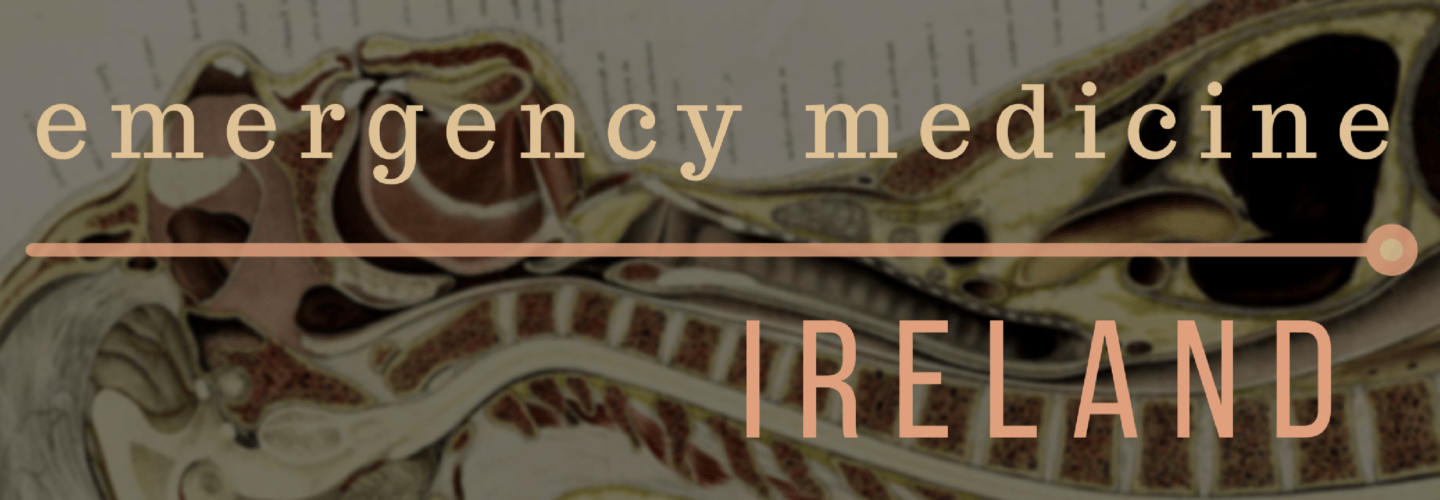I’m entering a few months prep for the UK and Ireland exit exam in Emergency Medicine: the FRCEM. I’ll be adding lots of little notes on pearls I’ve learned along the way. A lot of my revision is based around the Handbook of EM as a curriculum guide and review of contemporary, mainly UK guidelines. I also focus on the areas that I’m a bit sketchy on. With that in mind I hope they’re useful.
You can find more things on the FRCEM on this site here.
(featured image: Dnn87 on Wikipaedia, CC License)
Renal.org holds the NICE and RCEM endorsed guideline on this. The graphic design on the algorithm makes my head hurt but it is quite informative.
What causes hyperkalaemia?
- renal
- pre, renal or post all of them can cause issues with high potassium
- acidosis
- calls shift from intra to extracellular
- see this lots in DKA and post arrest
- cell injury
- tumour lysis
- rhabdo
- Hypoadosteronism
- drugs
- ACEi the most famous
- Spironolocatone
- digoxin toxicity (remember it works by screwing the Na-K-ATPase pump)
- spurious
- what we see all the time when the poor GP gets the result of 7 on a Friday evening and has to send them to us for a repeat
[collapse]
what does it do to the ECG?
- LITFL library has a great collection
- what doesn’t it cause on an ECG might be a better question
- in summary (in very loose order)
- increased t wave amplitude
- decreased p wave amplitude
- bradycardia
- PR prolongation
- QRS prolongation
- varying degrees of heart block
- sine waves
- VF
- asystole
[collapse]
How should we manage it?
- follow the algorithm
- none of it is that surprising but some subtle points
- they allow for “clinical scenario” ie if it’s 6.1 and it’s a chronic renal patient who’s had 6.1 since 1977 then it might be OK to do nothing
- calcium only if ECG changes
- >6.5 means treatment
- if giving calcium then it suggests 30mls 10% gluconate or 10mls 10% chloride
- 10 units insulin and either 50mls 50% dex OR 125ml 20% (i suspect most of us are using the latter)
- salbutamol dosing is 10-20mg
- resonium has no real role for us at least
- dialysis is to be considered if >6.5 despite therapy
- note they have a separate algorithm for cardiac arrest in hyperK
- bicarb gets a mention after the usual initial calcium/insulin
- they mention dialysis during CPR which is nice to see written down but hard to see this actually happening unless the arrest is in the ICU with lines in, in which case your ICU probably has bigger issues in not picking it up before the arrest!!
[collapse]
What causes hypokalaemia?
- potassium loss
- can be renal
- GI
- diruetics
- hyperaldosteronism (Conn’s syndrome)
- remember magnesium is tied to potassium and you may well need to correct both
[collapse]
What does hypokalaemia look like on ECG?
- LITFL
- increased P wave
- prolonged PR
- t wave flattening and inversion
- ST depression
- U waves making it look like there’s a long QT when there isn’t
[collapse]
